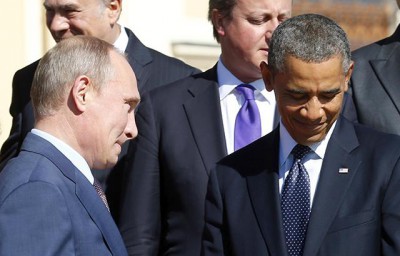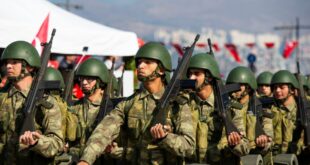Abdel Bari Atwan
US President Barack Obama has refused to receive his Turkish counterpart at the White House during the latter’s current visit to the American capital. The perceived ‘snub’ was widely discussed in the media and Erdogan used a high-profile meeting with top academics and think-tank advisers to castigate Obama’s foreign policy decisions in Syria.
On Thursday evening the Obama administration climbed down somewhat by organizing a meeting between the two leaders on the side lines of the 2016 nuclear summit but the snub remains – an invitation to the White House indicates that a leader is being courted by the incumbent. Israeli premier Benjamin Netanyahu this month declined such an invitation in a kind of reverse snub.
Relations between Obama and Erdogan have been on a downward spiral for some time. The White House insult was compounded by a refusal by the President to attend Erdogan’s opening of a new, Turkish-funded mosque in Maryland.
The US administration has openly condemned Erdogan’s crackdown on opposition movements, and his direct interference with the Turkish media. The rift goes deeper than this, however – after all, the White House has overlooked the most blatant human rights abuses in countries such as Saudi Arabia, welcoming the desert kingdom’s leaders with great fanfare and miles of red carpet and lavish banquets. The only leader visiting Washington for the nuclear summit to receive an invitation was China’s Hu Jintao.
Obama has decided to distance himself from Washington’s two main allies in the Middle east – KSA and Turkey – and to gradually lessen US involvement in the region as it becomes more deeply mired in sectarian and ethnic conflict.
In addition, the Kurds – those in Syria in particular – have been invaluable allies in the fight against Islamic State. In one of the most peculiar paradoxes in the region’s current political convolutions, the Kurds appear to have been co-ordinating their efforts with the Syrian regime that the White House has been trying to topple for the past five years. Erdogan, who has fought a decades-long civil war with Kurdish separatist groups such as the PKK and YPG, regards the Kurds as ‘terrorists’ and last year told Obama to choose ‘between the Kurds and Turkey’. Obama appears to have chosen the former.
There is a further subtext in Obama’s failure to extend an invitation to Erdogan which amounts, in fact, to several complaints:
First, the Turkish President has refrained from launching a real ground effort against Islamic State in Syria, despite American requests to send troops; second, Ankara has broken the truce with the armed wing of the Kurdistan Democratic Party of Syria which is a Washington ally.
The timely leak of comments about Erdogan made by King Abdullah of Jordan in a secret meeting with congressional leaders back in January is also suggestive, coming as it does in the aftermath of the Brussels massacre carried out by Islamic extremists. King Abdullah told top US lawmakers – including John McCain – that ‘Erdogan believes in a radical Islamic solution to the problems in the region’ and that ‘terrorists going to Europe is part of Turkish policy’.
Turkish-Jordanian relations have been precarious since the two countries took opposite sides over the ousting of President Morsi from Egypt and the subsequent vilification of the Moslem Brotherhood (MB) by several countries including Jordan – Erdogan meanwhile being closely aligned with the MB. Although these comments have now been denied by Jordanian officials, it is our view that Washington has launched a sort of ‘cold war’ against Erdogan and would not be sorry to see him go. Indeed, some media reports suggest that there is a plot between Russian President Vladimir Putin and Obama to oust Erdogan.
Erdogan found himself out on a limb when he remained committed to the removal of Syria’s President Assad as a precondition to peace talks. Times have moved on from that position with the US more minded, apparently, to agree the Russian plan to create a period of transition during which Assad would remain at the helm.
But this is just one of many differences between the two countries as the gap between them widens. It seems the US is simply moving away and turning its back on its former ally when it does not dance to Washington’s tune. We have grown used to this pattern.
 Geostrategic Media Political Commentary, Analysis, Security, Defense
Geostrategic Media Political Commentary, Analysis, Security, Defense





